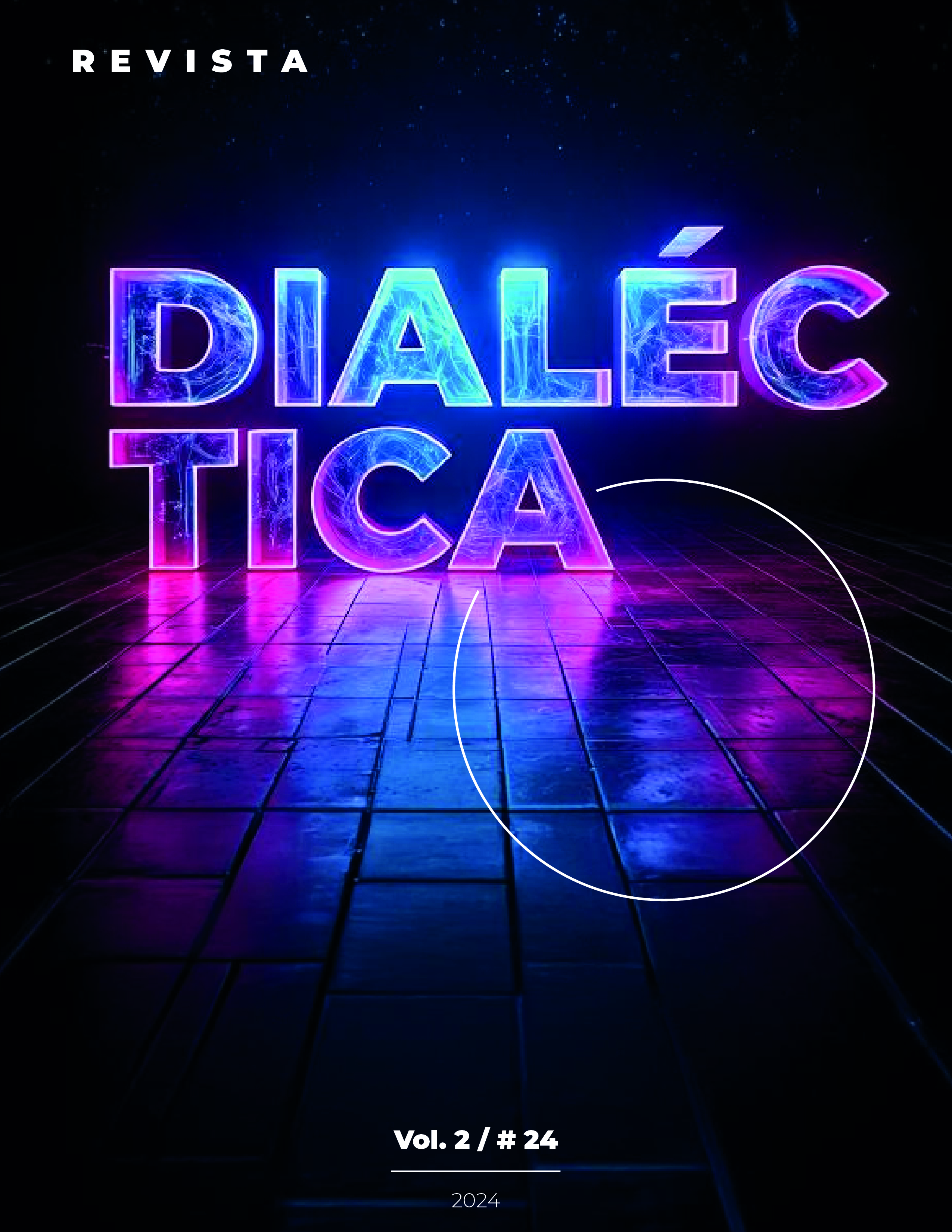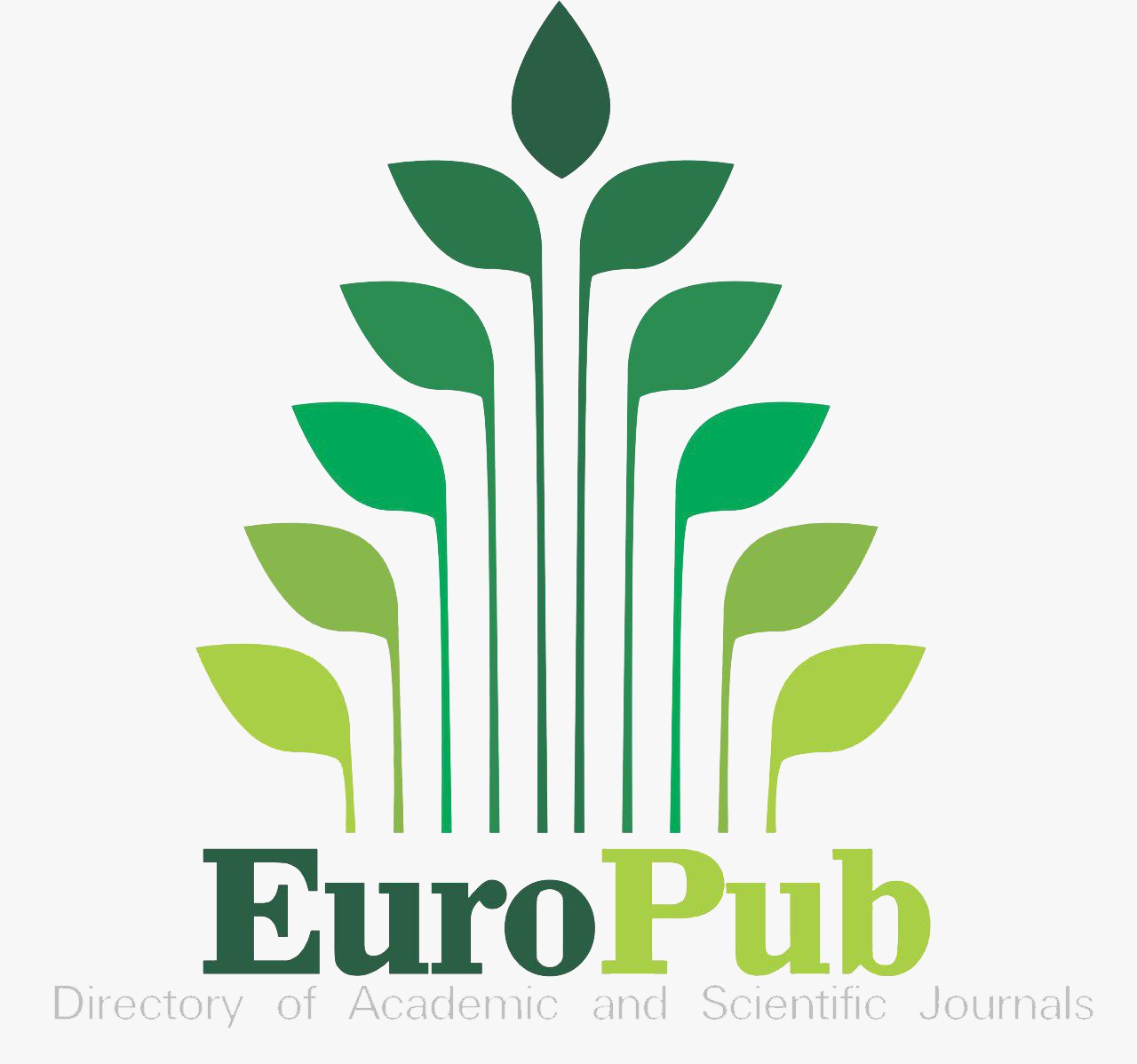DIGITAL TECHNOLOGIES AND ARTIFICIAL INTELLIGENCE AS INNOVATIVE RESOURCES FOR THE TEACHING PROCESS IN BASIC SECONDARY EDUCATION
DOI:
https://doi.org/10.56219/dialctica.v2i24.3460Keywords:
digital technologies, artificial intelligence, innovative resources, teaching process, basic secondary, educationAbstract
Technologies today have largely taken over the daily events of society; reason that leads to reimagine the role of artificial intelligence in education, which is why the present general objective: To reflect on the implementation of digital technologies and artificial intelligence as innovative resources in the teaching process in basic secondary education, developed in the Carlos Ramirez Paris Educational Institution - Don Bosco 88 - Cúcuta - Norte de Santander - Colombia. The methodology used focuses on a documentary review where the technique of content analysis is implemented and is linked to what is a review of documents that were obtained through a systematic review, which allows the construction of this theoretical contribution; it is worth noting that these documents are part of the research entitled: Theoretical Constructs On Innovative Teaching Practice Mediated By Technologies In Basic Secondary Education. It is appropriate to point out that it is achieved as a result to visualize that indeed digital technologies and artificial intelligence is relevant to include it in the teaching and learning process. Thus, it is possible to conclude that at present it is necessary to have knowledge about what is contained in digital technologies and at the same time the inclusion of artificial intelligence is assumed, since society currently demands these new innovative resources for teaching in basic education.
Downloads
References
Angulo, M. (2022). Innovación con propósito: educación y tecnología en Colombia. https://profuturo.education/observatorio/enfoques/innovacion-con-proposito-educacion-y-tecnologia-en-colombia/
Aparicio, O. (2023). La Inteligencia Artificial y su Incidencia en la Educación: Transformando el Aprendizaje para el Siglo XXI. Revista Internacional De Pedagogía E Innovación Educativa, 3(2), 217- 229. Obtenido de https://editic.net/ripie/index.php/ripie/article/view/133 DOI: https://doi.org/10.51660/ripie.v3i2.133
Ayuso del Puerto, D., & Gutiérrez, E. P. (2022). La Inteligencia Artificial como recurso educativo durante la formación inicial del profesorado. RIED-Revista Iberoamericana de Educación a Distancia, 25, 347- 358. doi: https://doi.org/10.5944/ried.25.2.32332 Calderón Figueroa, C. D., Marín Loor, R. A., Díaz Campozano, E. G., & Proaño Molina, M. Y. (2024). Inteligencia artificial en la educación superior. Dominio De Las Ciencias, 10(3), 753–763. Recuperado a partir de https://dominiodelasciencias.com/ojs/index.php/es/article/view/3952 DOI: https://doi.org/10.5944/ried.25.2.32332
Carbonell, E., Burgos, S., & Calderon, D. P. (2023). La Inteligencia Artificial en el contexto de la formación educativa. EPISTEME KOINONIA. doi: https://doi.org/10.35381/e.k.v6i12.2547 Cotrina-Aliaga, J. C., Vera-Flores, M. Á., Ortiz-Cotrina, W. C., & Sosa-Celi, P. (2021). Uso de la Inteligencia Artificial (IA) como estrategia en la educación superior. Revista Iberoamericana de la Educación. https://doi.org/10.31876/ie.vi.81 García Villarroel, J. J. (2021). Implicancia De La Inteligencia Artificial En Las Aulas Virtuales Para La Educación Superior. Orbis Tertius - UPAL, 5(10), 31–52. https://doi.org/10.59748/ot.v5i10.98
García, F., Llorens, F., & Vidal, J. (2024). La nueva realidad de la educación ante los avances de la inteligencia artificial generativa. RIED-Revista Iberoamericana de Educación a Distancia, 27(1), 9-39. doi: https://doi.org/10.5944/ried.27.1.37716 DOI: https://doi.org/10.5944/ried.27.1.37716
IBERO. (2022). El Impacto de la Tecnología en la Educación Colombiana: Tendencias y Oportunidades. https://www.ibero.edu.co/blog/articulos/impacto-de-la-tecnologia-en-la-educacion
Loayza Solórzano, M. S., & Moya Martínez, M. E. (2024). Los retos de la inteligencia artificial en el proceso de enseñanza aprendizaje. LATAM Revista Latinoamericana de Ciencias Sociales y Humanidades 5 (2), 1983 – 1996. https://doi.org/10.56712/latam.v5i2.1989 DOI: https://doi.org/10.56712/latam.v5i2.1989
Murillo, G. (2020). Estrategias educativas y tecnología digital en el proceso enseñanza aprendizaje. Cuadernos Hospital de Clínicas volumen 61 número 1.http://www.scielo.org.bo/scielo.php?script=sci_arttext&pid=S1652-67762020000100010
Silva, A. V. C., Patiño, A. C. M., & Álava, S. P. C. (2024). Desafíos de la Educación frente a la Inteligencia artificial. Polo del Conocimiento, 9(6), 1956-1969.
Torrijos, C. y Sánchez, J. (2023). La primavera de la inteligencia artificial. Madrid, España: los libros de la Catarata. https://www.google.co.ve/books/edition/La_primavera_de_la_inteligencia_artifici/h7nFEAAAQBAJ?hl=es-419&gbpv=1&dq=inteligencia+artificial&printsec=frontcover
UNESCO (2022). Educación y tecnologías digitales. Oficina para la América Latina y el Caribe del IIP UNESCO. https://siteal.iiep.unesco.org/eje/educacion_y_tic
Vallejo, A. y González, A. (2023). La aplicación de la inteligencia artificial en educación: una reflexión crítica sobre su potencial transformador. https://blogs.ead.unlp.edu.ar/boletinaulacavila/2023/02/27/la-aplicacion-de-la-inteligencia-artificial-en-educacion-una-reflexion-critica-sobre-su-potencial-transformador/ Vera, F. (2023). Integración de la Inteligencia Artificial en la Educación superior: Desafíos y oportunidades. Transformar, 4(1), 17-34. https://www.revistatransformar.cl/index.php/transformar/article/view/84
Downloads
Published
How to Cite
Issue
Section
License
Copyright (c) 2025 DIALÉCTICA

This work is licensed under a Creative Commons Attribution-NonCommercial-ShareAlike 4.0 International License.
La revista Dialéctica conserva los derechos patrimoniales (copyright) de las obras publicadas, que favorece y permite la reutilización de los mismos bajo la licencia Creative Commons Atribución-NoComercial-CompartirIgual 4.0 , por lo cual se pueden copiar, usar, difundir, transmitir y exponer públicamente, siempre que se cite la autoría y fuente original de su publicación (revista, editorial, URL y DOI de la obra), no se usen para fines comerciales u onerosos y se mencione la existencia y especificaciones de esta licencia de uso. Si remezcla, transforma o crea a partir del material, debe distribuir su contribución bajo la misma licencia del original.












